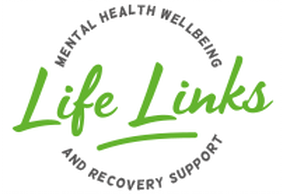It’s that time of year again – Leicester celebrates Pride this Saturday 4th of September! While everyone enjoys all of the fun, music and celebrations, it’s important to remember why we celebrate Pride and its significance.
LGBT+ Pride can be defined as: “the promotion of the self-affirmation, dignity, equality, and increased visibility of lesbian, gay, bisexual, and transgender (LGBT) people as a social group.”
Why is this still so important?
The UK has been celebrating ‘Pride’ since 1972, but despite this, many LGBT+ people still face unacceptable stigma and discrimination. This stigma can be internalised by LGBT+ people, meaning that they start to feel badly about their own sexuality or gender, which can lead to mental-ill health. Here is just a snapshot of some of the statistics:
- 52% of LGBT people said they’ve experienced Depression in the last year
- 72% of bi-women and 56% of bi-men have experienced Anxiety in the last year
- 48% of transgender people in Britain have attempted Suicide at least once.
We can therefore see that Pride is still so important, in helping to end the stigma and demonstrate our support and solidarity for our LGBT+ community.
How can we continue to help?
As Pride month and Leicester’s Pride event now comes to an end, it’s important for us to consider how we can continue to show our support for the LGBT+ community. Here are some tips:
- Educate yourself!
This could involve familiarising yourself with LGBT+ language and terminology and researching the history of LGBT+ activism. - Listen
Listen to the LGBT+ community. Follow LGBT+ people on social media and consume content written by LGBT+ people. Also, ensure to be kind and understanding if someone comes out to you. - Speak Up
If you hear people making homophobic, biphobic or transphobic comments/jokes, try to call them out and calmly challenge them. - Avoid Assumptions
Not everyone we meet is straight or cisgender, so avoid using gendered language where these assumptions are applied. i.e. asking about someone’s ‘partner’ instead of ‘’boyfriend/girlfriend - Indicate your pronouns
Show your solidarity by including your pronouns next to your name (i.e. he/him, she/her). Did you know that Instagram now has this feature?
Knowing where to signpost for further support:
It’s important for us to be supportive for our friends, family and community, but sometimes we may not always know what to say or exactly how to help.
This is ok! In these instances, we can signpost people to more specialist services, whilst also showing our own support.
Here are a few services that could help:
- LGBT Switchboard:
Listening services, information and support for lesbian, gay, bisexual and transgender communities.
T: 0300 330 0630 W: www.switchboard.lgbt - Albert Kennedy Trust
Supports LGBTQ people aged 16-25 who are homeless or living in a hostile environment.
W: akt.org.uk
- FFLAG
Offers support to parents, friends and family members of those who identify as LGBT+.
W: fflag.org.uk
- Galop
Provides helplines and other support for LGBTIQ+ adults and young people who have experienced hate crime, sexual violence or domestic abuse.
T: 0207 704 2040 (LGBT+ hate crime helpline)
T: 0800 999 5428 (National LGBT+ domestic abuse helpline)
W: www.galop.org.uk
- MindLine Trans+
Free, confidential listening service for people identifying as trans or non-binary, and their friends and families.
T: 0300 330 5468
For anyone that’s attending this year’s Pride, we hope you have an amazing time celebrating!




